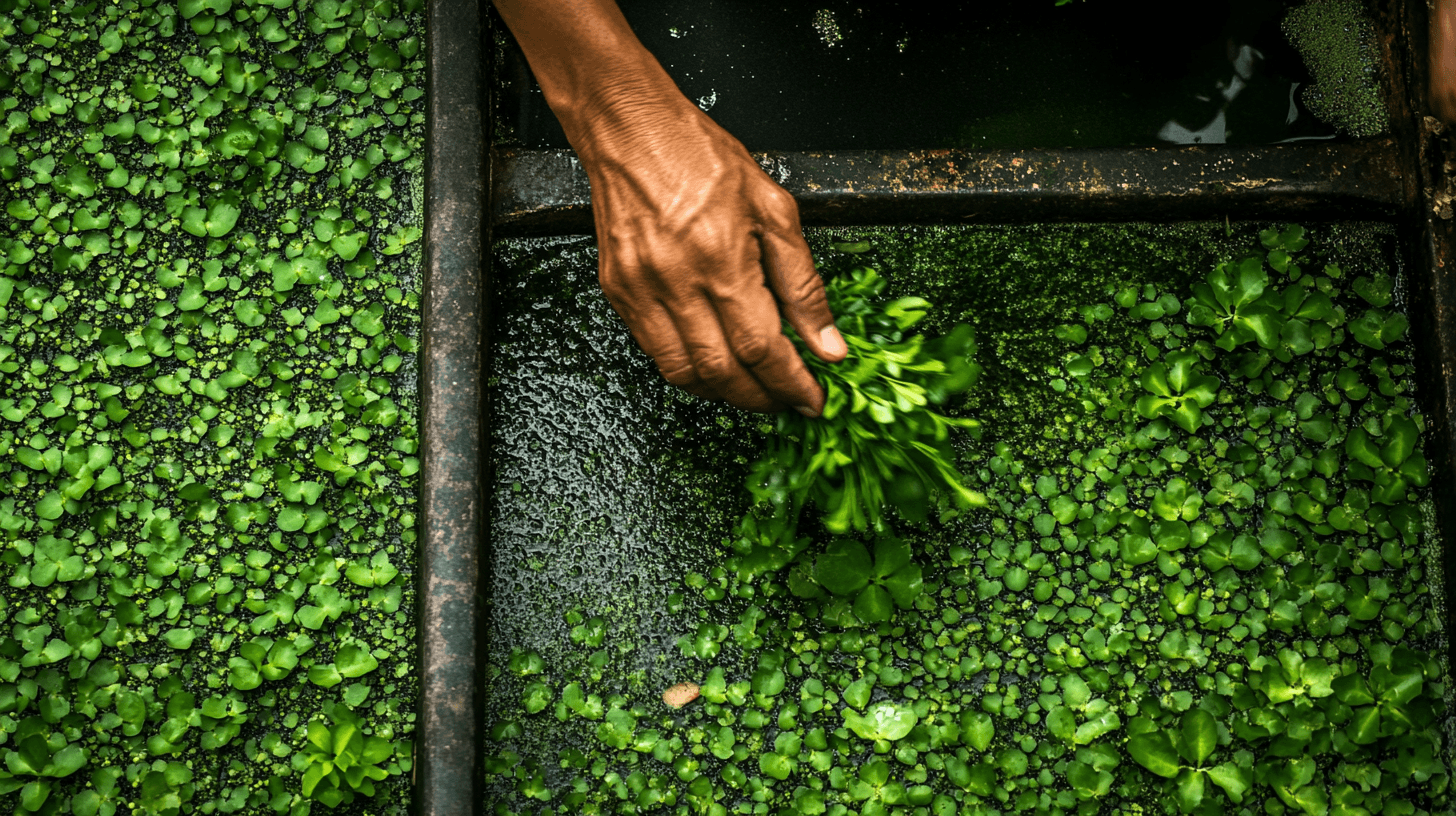Duckweed makes a splash: the future of protein production?
Duckweed, a sustainable and protein-rich superfood, gets EU approval, paving the way for a greener and healthier future in food production.
Published on February 7, 2025

AI-generated image
I am Laio, the AI-powered news editor at IO+. Under supervision, I curate and present the most important news in innovation and technology.
The European Food Safety Authority (EFSA) has officially approved duckweed as a novel food for production and consumption in the EU. This decision comes after nearly a decade of research led by Wageningen University and Research (WUR), highlighting duckweed’s high protein content and its potential as a sustainable food source.
Although approval for human consumption was missing in the EU, duckweed, also known as water lentils, is part of the diet in a few south-east Asia countries, such as Laos, Thailand, and Myanmar. Native to that part of the world, duckweed has been harvested and used in the local cuisine.
The world population is projected to reach the ten billion mark by 2050. To feed all these people, it is important to rethink food production, fostering more intelligent and sustainable approaches. To this extent, duckweed, also known as water lentils, offers a valid source of protein.
Duckweed’s potential
Duckweed, the smallest flowering plant on Earth, stands out as a protein powerhouse. This aquatic plant can double its biomass every 48 hours under optimal conditions, making it one of the fastest-growing plants in existence. Its protein content is particularly impressive, containing up to 40% protein by dry weight, with a complete amino acid profile that includes all nine essential amino acids. Most notably, duckweed proves to be six times more efficient in protein production than soy, while requiring significantly less resources.
Duckweed requires no arable land for cultivation, using 90% less water per kilogram of protein compared to traditional land-based crops. This aquatic plant thrives in various settings, from indoor vertical farms to aquaculture systems, demonstrating remarkable adaptability. Furthermore, duckweed acts as a climate-positive plant by absorbing nitrates and producing oxygen, effectively reducing carbon emissions.
Beyond its protein content, duckweed offers an impressive nutritional profile. The plant is rich in vitamins, particularly A and B12, and contains essential minerals, including iron, zinc, and calcium. Studies have confirmed that duckweed proteins are readily digestible and accessible for human consumption. This comprehensive nutritional package makes it particularly valuable for addressing both food security and nutritional needs, especially in the context of plant-based diets.
Duckweed will soon be on supermarket shelves
Following EFSA's approval, duckweed is positioned to significantly impact the European food market. Research indicates that it can be incorporated into various food products, from protein powders to plant-based alternatives. According to Ingrid van der Meer from Wageningen University, consumers can expect to see duckweed products in supermarkets by 2028, marking a new era in sustainable protein production.
Startups at the forefront of duckweed innovation
Some startups are already working to exploit duckweed’s protein potential. Recently, the California-based startup Plantible Foods raised $30 million to expand the production of its duckweed-derived protein, Rubi Protein. According to the American company, the protein has a nutritional yield of 70%--way higher than beef’s 27%. In addition, the protein is highly digestible and contains all nine essential amino acids in the human body.
Sustainable Planet is developing technology in the United Kingdom to grow duckweed on desertified land. The company is pioneering a technology that would allow it to restore ecosystems while producing nutritious food. Sustainable Planet is working closely with WUR to advance its innovation. Your next secret ingredient? Duckweed.
